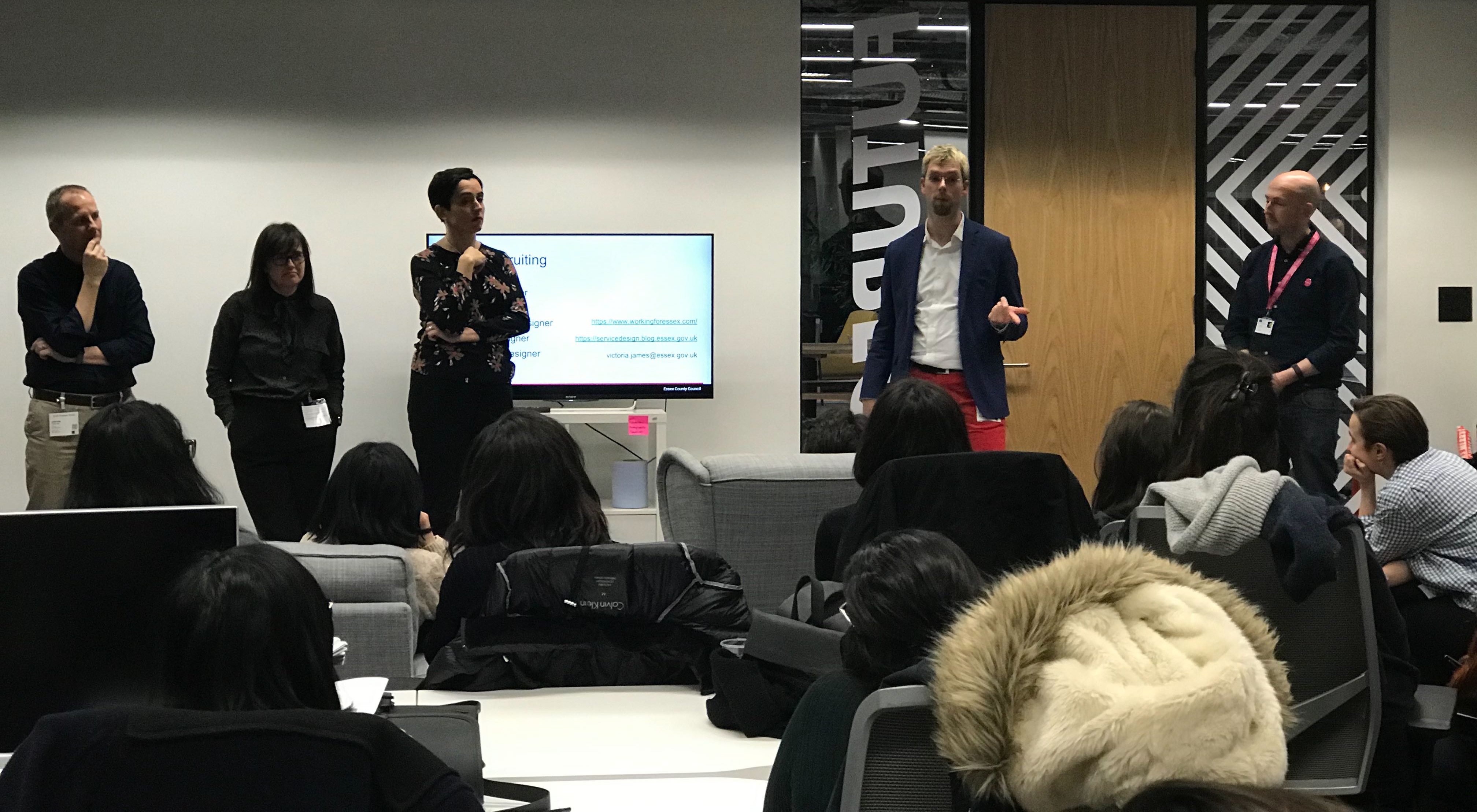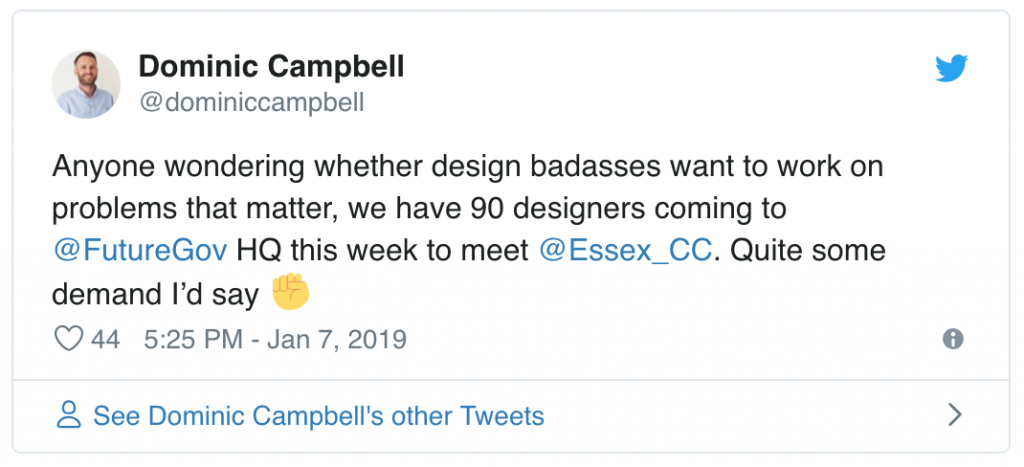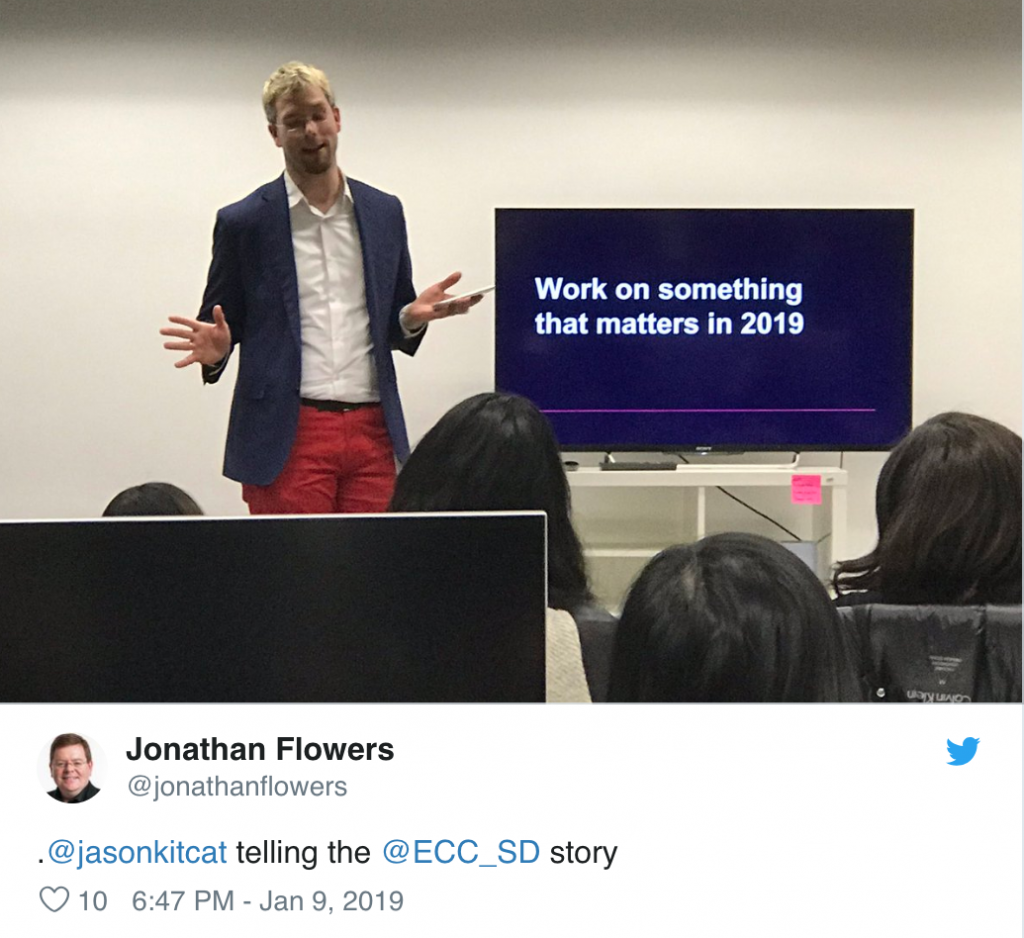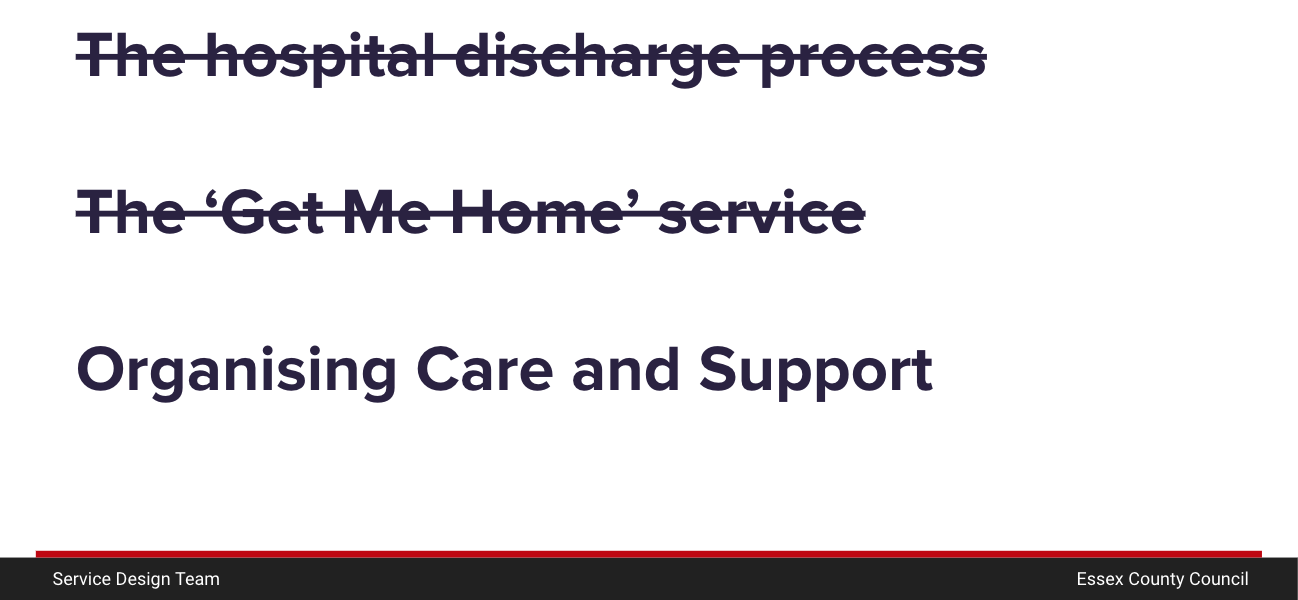
Wednesday evening, we and our friends at FutureGov hosted an event to meet with some of the UK's digital service design talent. We met service designers, researchers, students and others to talk about how we're transforming public services in Essex. It was a chance to explain why it's a great time to join our Service Design Team as we dig into the work of building user-focused digital services which are simpler and faster to use. Despite being a cold, wet January evening, the turnout at FutureGov's new HQ was fantastic…

A poll of the room showed that only a handful attendees came from Essex. It's good to see the work we're doing garner broader interest.
Ben Holliday, Chief Design Officer at FutureGov, kicked off the event to talk about why the front line of service design for local government is a great place to be working. He explained how local government takes on the kinds of social and environmental issues that people really feel in their day to day lives. This was echoed by responses to FutureGov's poll on why digital professionals work in local government:
- "delivering work that is needed (and won’t just end up as a printed report in a drawer)"
- "the ability work projects across a variety of sectors"
- "local authorities are the sharp end of attempts to achieve real social justice for real people"
Touching on Essex County Council's ambition to bring about meaningful change and deliver better public services, he ended on a clear call to action: "Work on something that matters in 2019".
Next up was Jason Kitcat, Executive Director for Corporate Development here at Essex County Council. He spoke about gaining a mandate to genuinely do things differently. A huge step was getting the local approval to adopt GOV.UK's Digital Service Standard. The significance can't be overstated. We're not reinventing the wheel. We're adopting tried and tested methods to deliver better public services quickly and efficiently, while putting real people at the heart of everything we do.
He also spoke about the progress that government is making to move away from a mechanistic mindset of pulling levers and expecting things to change, towards a gardening mindset where we plant the right seeds and nurture them to grow. This is how we create the conditions for better, faster cheaper public services that meet people's needs and expectations, he explained.

Next, Vicki James, our Head of Service Design, elaborated on the need for government services to catch up to 21st century demands, and the challenges of doing so in a county of 1.3 million people (and 350 miles of coastline it turns out). She talked about the political makeup of Essex, with its county council, 12 district councils and 2 unitary councils as well as numerous trusts and partnerships.
She also spoke about the county's geography and demographics, being 72% rural, with 1 in 5 people over the age of 65. The upshot: Essex is a large, diverse place, which makes the need for excellent digital services absolutely paramount. Our challenge is to do the hard work to make things easier for everyone in a county the size, diversity and complexity of Essex.
Helen West, Head of Product, spoke next. She talked about introducing the idea of product ownership at Essex County Council, as well as the project she's currently leading on: the forthcoming website beta. A quote from our user research proved a highlight of the evening: "it’s not fancy-schmancy, it does what it says on the tin". She also touched on the work our content designers are doing to "bin the jargon and ban the legalese". These are themes we'll be revisiting here on the blog – why a new clearer and simpler design with accessible language is right for an organisation that puts the needs of users first.

Lead Service Designer Nic Ward talked about establishing the Service Design Team here at the council. He also touched on the case study of Organise Care and Support, a service to help people planning to leave hospital. He explained how we've renamed the service (more than once) in the light of user research and feedback, to ground our work in the needs and motivations of the people who might rely on the service.
More broadly, he said how building prototypes, testing them, and being adaptable has proven invaluable in our work. In the case of Organise Care and Support, these were learnings from real people making pivotal decisions on their future lives in really difficult circumstances.
Vicki wrapped up by sharing our current openings. For our team, the real value of the event were the conversations we had with those that came along, both at the event and afterwards on social media. We were overwhelmed by people's enthusiasm for what we’re doing – and how we’re doing it. It was so heartening to see this extend to people yet to work in the public sector and their eagerness do truly meaningful work.
Wednesday marked the beginning of a wider conversation with the digital service design community – one we'll continue with other events and here on the blog by sharing what we're learning about shaping the future of public services in Essex and, hopefully, beyond. Thanks again to everyone that came along, please drop us a line if you'd like to know more about the roles we have available or the work we do.
Leave a comment